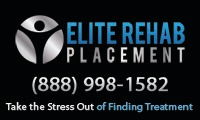Alabama Drug and Alcohol Treatment Centers

Alabama, like many of the Southern states, has a history steeped in Native American history. While still heavily-debated, the state's very name is either a Muscogean or Choctaw Indian term that translates into "tribal town," or "vegetation gatherers," respectively. Regardless of the word's exact origin, the 22nd state's common theme is "community," which is exactly what you'll find with its great selection of rehab centers.
According to the National Institute on Drug Abuse (NIDA), there were 422 overdose deaths involving opioids in Alabama—a rate of 9.0 deaths per 100,000 persons and over half the national rate of 14.6 deaths per 100,000 persons in 2017.
Addiction in the United States
Substance dependence develops in two different ways. As one uses an addictive substance, the feel-good chemical dopamine gets released. Over time, the brain begins to require the abused substance in order to produce dopamine. Thus, causing the person to have urge to continue using the substance and fall into a self-destructive cycle of substance abuse.
Addiction to alcohol and illicit or prescription drugs have caused many people in the U.S. to suffer beyond physical harm. Due to the nature of the disease, it can change the way the person with addiction interacts with the people around them and handle responsibilities.
Despite all of the existing scientific research available, there are still many of those who view substance abuse as a simple lack of resolve, and that willpower is the only thing standing between someone and their recovery.
In truth, drug addiction chemically alters the brain and affects a user’s psychology as a whole. Therefore, addiction is not easily resolved by merely revising one’s habits, but rather by extensive physical and mental intervention. As with other illnesses, recovery starts with accepting that you require professional help.
Alabama Drug and Alcohol Rehabs
Alabama is located on the southeastern region of the U.S., and is part of the famous Blue Ridge Mountain range. Like its southern brethren, Alabama features lots of rich forest areas and natural wonders. From Birmingham to the seaside Mobile, Maryland hosts an adequate amount of 12-step as well as evidence-based drug and alcohol treatment programs. Alabama’s boundless nature is a great choice, as it gives the person suffering from addiction the chance for reflection and opportunity for complete recovery.
Types of rehab programs may vary, but many of them require from days, weeks or even months to complete. You may choose to enter rehab on a residential or outpatient basis. Most patients, however, find the most benefit out of a program that lasts three months or longer, according to NIDA.
Inpatient Drug Rehab Centers
Currently in the state of Alabama, there are just over five different drug and or alcohol rehabilitation centers that offer a 90 day residential substance abuse program. Many addicts may not want to commit to a 90-day program, but it is important to understand that an addiction cannot always be solved in a short period of time. Many addicts require long periods of time to treat their addiction, and during this process, they can handle all aspects of it and move on with a drug-free life.
Some particular forms of help can be provided within an inpatient drug rehab program. This can include holistic programs, faith-based treatment, and facilities that only provide age and or gender-specific treatment options for their clients. Specialized treatment is very useful for some addicts, as they may have a unique circumstance, they will require help with.
Outpatient Rehab
At outpatient programs, you have flexibility in maintaining your responsibilities while embarking on your recovery journey. Outpatient centers typically only require approximately 10 to 12 hours of medical treatment per week. This is a great option for those with young children who need supervision and care, or for those who simply cannot afford to miss work at large. Outpatient facilities utilize morning or nightly meetings to help patients maintain their normal schedules, as well as individual counseling to give you the best possible outcome.
Outpatients will have to regularly visit a hospital or other treatment facility for physical and mental evaluations during the detox phase. They focus on drug abuse education and counseling, and are also used as a long-term treatment regimen.
Detox for Drugs and Alcohol
The moment you decide you to quit abusing substances, you're going to need detox. Some people find this process to be the most difficult part of getting sober, but don't let this discourage you. Instead, view detox as a necessary step to beginning your new life. Having medical professionals guiding and monitoring you through it all can help put your mind at ease. Here's a look at the three different stages of the detox process.
Acute Detox: Detox begins with the acute stage, which many people choose to go through at a detox center. Medical supervision is often necessary during this period, especially when coming off of harsh drugs like benzodiazepines, heroin or alcohol. At this time, you may receive some medication that will help decrease some withdrawal symptoms, although you may still experience shaking, sweating, anxiety, nausea or fatigue.
Emergent Detox: During the emergent stage, possible health conditions that may have gone undetected during active addiction begin to emerge. Common health issues include high blood pressure, diabetes and mental health conditions like bipolar disorder or clinical depression. This is why it’s important that you see both a medical doctor and a mental health therapist as you come off of your drug of choice so that you can work with them to detect and address all possible issues.
Post Detox: The last part of detox is known as the post detox stage. This is when you get home and deal with life without using your substance of choice as well as any lingering withdrawal symptoms on your own. While this stage can be rough at first, bear in mind that any symptoms you may feel will come to an end and that life will become better for you all the way around.
The post detox stage lasts for about a month or two, depending on what your drug of choice was and how much detoxifying your body has to do. The overall experience tends to vary based on factors like one’s coping skills, the presence of therapy, 12-Step meeting attendance, and general mental and physical health.
How to Find the Best Rehab Program in Alabama
Ready to get sober? Alabama rehab programs are diverse and offer a number of amenities, treatment styles and program philosophies. When you're ready to start your treatment journey, here's how you get started.
Research Your Options. With so many treatment options throughout Alabama to choose from, it's important to do your research and find out what treatment centers have the amenities, funding and programs you're looking for.
Call for an assessment. The first step to getting started in any treatment program is a chemical use assessment or evaluation. This necessary step will help a treatment facility or counselor learn more about you and your goals for getting sober.
Stay the course. It's not always easy starting the process of recovery, but it's worth it when you stick with it. Alabama offers a variety of programs to help you recover from substance use disorder. Remember, Rome wasn't built in a day, and neither is recovery. Stick with it and you'll learn new skills to help you every day – just take it one day at a time.
There are many options for both outpatient and inpatient treatment centers in Alabama, no matter if you're struggling from alcoholism, drug addiction or both. Browse our directory of Alabama treatment programs and call about your recovery options.
Addiction Treatment Cost
Before you get started, it's important to talk with your treatment center about payment plans or other options they may have available. Some residential treatment programs are covered by insurance or by a state's consolidated fund, while others require either a partial or full out-of-pocket payment. Inquire about insurance, statewide consolidated funds, or a scholarship program for free or subsidized treatment. Just like any treatment program, the cost of a rehab treatment will vary based on the amount of hours you're recommended to complete. Other factors include amenities, insurance funding and the type of program itself. No matter which option you choose, you will be among others learning to cope from drug and alcohol addiction as well. This community will help you improve the experience of transitioning to your healthier, brighter new path in life.









